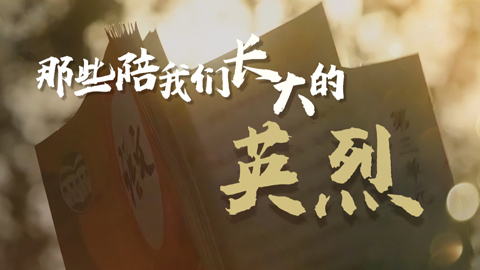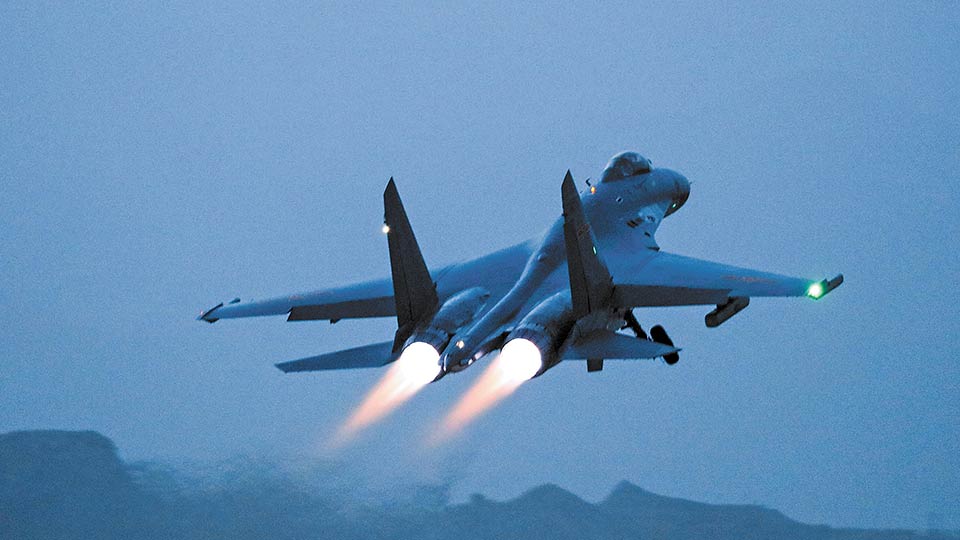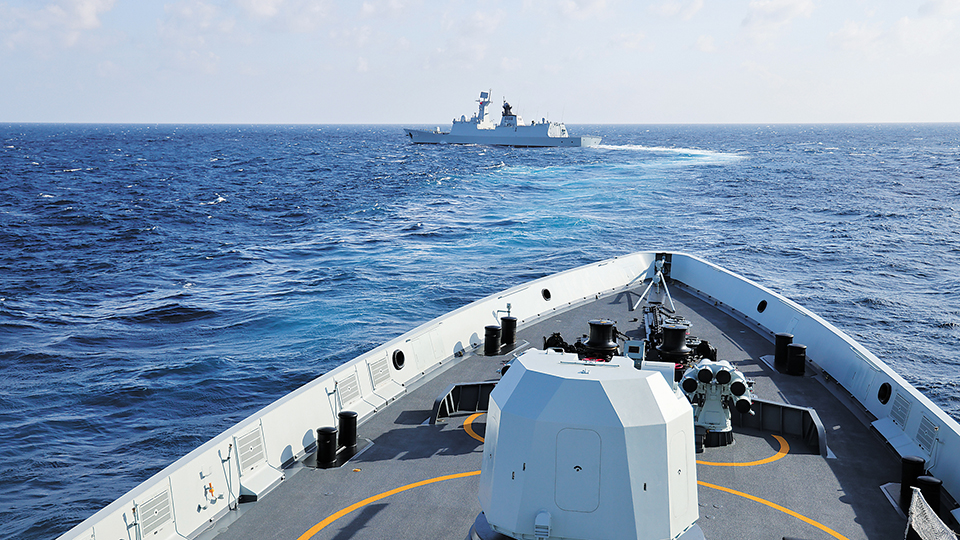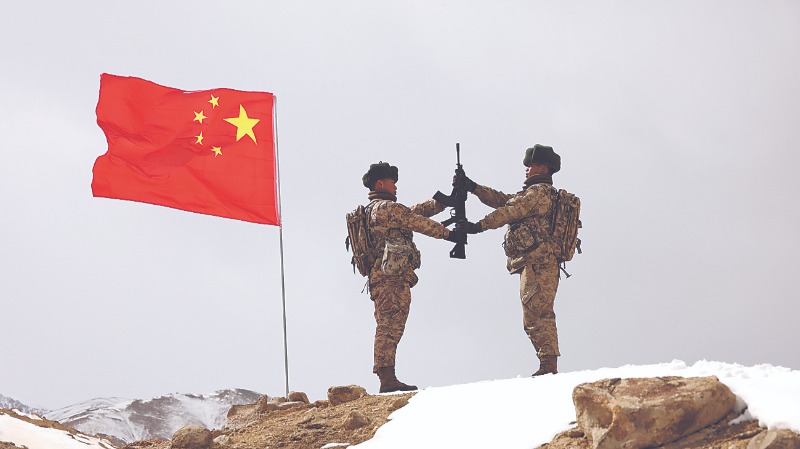By Le Shui
乐水
The recent "two plus two" meeting between American and Japanese foreign and defense ministers once again had China in its crosshairs. Not only did the two countries agree to expand their military cooperation targeting China as an imaginary enemy, but they also vowed to keep a close eye on China’s ongoing and accelerating nuclear weapon development. The new trick of "denouncing" China's "nuclear threats" is just a "thief crying 'stop thief'" stunt by Washington, which, with a long record of randomly imposing nuclear deterrence on other countries, once again showed the world its deft practice of "double standards".
近日,美国和日本在举行外长防长“2+2”会议时再次将矛头对准中国。双方不仅进一步扩大以中国为假想敌的军事合作,还声称将“持续关切中国正在和加速进行的核武器扩张”。美国此次翻出中国“核威胁”的新花样,实则是“贼喊捉贼”。美国作为一个动辄对他国进行核威慑的国家,在无端炒作所谓中国“核威胁”的同时,也向世界展现了何谓“美式双标”。
According to data published by the Stockholm International Peace Research Institute (SIPRI), the US possessed 5,550 nuclear warheads in 2021, including 1,700 strategic ones in deployment, and the total number was 1,728 more than in 2017. A report by the US Congressional Budget Office estimated the country’s spending on nuclear weapons at 634 billion US dollars in 2021-2030, 28% up from the previous decade. The White House's multiplication of its nuclear arsenal regardless of the international community's call for "nuclear disarmament" and its own debt-ridden dilemma has aroused serious suspicions and concerns.
根据斯德哥尔摩国际和平研究所公布的数据,2021年,美国共拥有5550枚核弹头,其中部署的战略核弹头就有1700枚。核弹头的总数较2017年增加了1728枚。另据美国国会预算办公室的报告估算,2021—2030年间,美国核武器支出将达6340亿美元,较前一个十年增长28%。在国际社会普遍呼吁“核裁军”的今天,美国政府不顾国内债台高筑却大肆扩充核武库,其背后动机实在令人怀疑。
Soon after China successfully test-fired its first atomic bomb, the Chinese government made a solemn commitment to the world that it would at no time and under no circumstances use nuclear weapons first and would never use them against non-nuclear weapon states and zones. It has never and will never pose a nuclear threat to other countries because its development of nuclear weapons is aimed to safeguard national security and preserve world peace against the nuclear blackmailing by certain major powers.
早在中国第一颗原子弹试爆成功后,中国政府就向全世界庄严承诺,中国在任何时候、任何情况下,都不会首先使用核武器,不对无核武器国家和无核武器地区使用核武器。因为中国发展核武器目的是反对某些大国的核讹诈,保卫国家安全,维护世界和平,所以中国无论过去还是将来都不会对他国进行核威胁。
Posing a sharp contrast to this is the US that has kept nuclear deterrence in its toolkit ever since it dropped two atomic bombs in Japan during WWII, and it has bothered less to cover up its intention of pursuing "nuclear hegemony" after the equilibrium was breached at the end of the Cold War. In 2019, the US’ official withdrawal from the Intermediate-Range Nuclear Forces Treaty (INF Treaty) it signed with the Soviet Union during the Cold War lifted the restrictions on its development and deployment of intermediate-range missiles. Last year, the US DoD's Nuclear Posture Review went back on the commitment to "no-first use of nuclear weapons" and vowed to use such weapons to counter both nuclear attacks and non-nuclear strategic attacks. The Biden administration minced no words about maintaining nuclear deterrence as one of its top priorities in the latest National Security Strategy. Wielding its nuclear stick on one hand and accusing China of nuclear expansion on the other, the US really knows no limit when it comes to preserving its nuclear hegemony.
但反观美国,自从在二战中以原子弹征服日本之后,核威慑一直都没有被移出过华盛顿的工具箱。尤其是自冷战结束以来,随着核平衡被打破,美国愈发不掩饰其追求“核霸权”的意图。2019年,美国正式退出美苏在冷战时期签署的《中导条约》,从此不再限制中程导弹的研制和部署;去年,美国国防部在《核态势评估报告》中明确否定了“不首先使用核武器”的承诺,并声称要使用核武器应对核攻击与非核战略攻击;拜登政府在新版的《国家安全战略》中更是毫不讳言“保持核威慑是美国的首要任务之一”。美国一手高举核大棒,一手指责中国扩张核武,这分明是“只许州官放火,不许百姓点灯”,为维护自身核霸权无所不用其极。
Washington is also a master hand at double standards regarding nuclear issues in order to attack its rivals and protect the allies. While pushing the nuclear weapon non-proliferation strategy in the world and flagrantly invading Iraq allegedly for its possession of weapons of mass destruction, the US has nevertheless decided to assist Australia in forming its own nuclear submarine fleet in defiance of the Treaty on the Non-Proliferation of Nuclear Weapons (NPT), a move likely to trigger a nuclear arms race in the Asia Pacific.
此外,美国政府还极擅于在核问题上玩弄双重标准,以实现打击对手和袒护盟友的目的。一方面,美国在国际社会上极力推行防核扩散战略,甚至不惜以莫须有的“大规模杀伤性武器”为由入侵伊拉克;另一方面,美国却公然违反《不扩散核武器条约》,协助澳大利亚建立核潜艇部队,企图引发亚太地区的核军备竞赛。
America's obsession with maintaining absolute nuclear superiority is rooted in its long-term pursuit for absolute military security, which requires absolute military superiority, and that has been on top of its agenda ever since the Cold War. Under this security goal, no wonder the superpower has left no stone unturned in keeping up its nuclear hegemony.
美国之所以要竭力维持自身核力量的绝对优势,根源在于其长期追求的“绝对军事安全观”。绝对军事安全必然要求绝对的军事优势。于是自冷战至今,美国始终把取得军事上的绝对优势作为其首要目标。在这一安全目标的指导下,美国不遗余力地维护其核霸权也就不难理解了。
Yet this kind of pursuit of one's own absolute security at the price of others' security is essentially a manifestation of hegemonism. Nuclear equilibrium is the cornerstone for world peace in the nuclear era. This cardinal principle, however, has been ignored and trampled upon by the US as it seeks to secure absolute nuclear superiority to maintain nuclear deterrence on other countries.
但是,美国以损害他国安全为代价追求自身“绝对安全”,实则是一种霸权主义行径。自人类进入核时代以来,核平衡就是维持世界和平的基石。但美国却无视核平衡的基本原则,片面追求自身核力量的绝对优势,以保持对他国的核威慑能力。
But the Cold War era is long gone, and peace and development are the main theme today, when America's clinging to the Cold War mindset and constant fomentation of division and confrontation across the world seem all the more out of place. Instead of hyping up the "nuclear threats" from China, the US should reflect on itself more and earnestly fulfill its obligations of nuclear disarmament and non-proliferation to keep the nuclear cloud left from the Cold War period from haunting humanity today.
冷战时代已经一去不复返,和平与发展才是当今世界的主流。美国却始终抱守冷战思维不放,不断在世界上制造分裂和对抗。奉劝美国与其炒作中国“核威胁”,不如多反躬自省,切实履行核裁军和核不扩散义务,不要让冷战的核阴霾继续笼罩在全人类的头顶上。
Editor's note: Originally published on china.com.cn, this article is translated from Chinese into English and edited by the China Military Online. The information and opinions in this article do not necessarily reflect the views of eng.chinamil.com.cn.



















